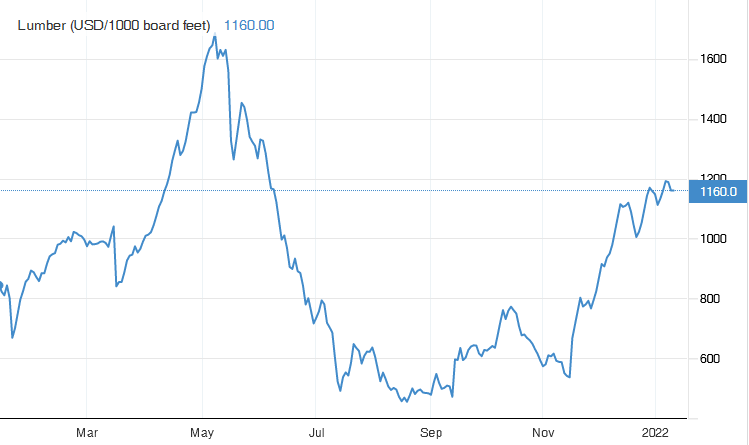
If you're unsure about how to get started, here are a few basics: Leverage, Spreads, Currency pairs, and Futures markets. Once you've mastered these basics, trading can be easy and you can start making money. These videos are also worth watching. We explain leverage and show you how to make money even if you don't have a financial background. These videos make a great start for beginners!
Leverage
Leverage in forex trading refers to a strategy that allows traders up to 100x their capital. Leverage traders can make thousands of pounds per $100 that they risk. This type of trading allows them to take advantage of small movements in the market to make huge profits. But leverage can prove dangerous if it works against you. This article will explain how leverage can be used in forex trading.
Leverage is a way to multiply one's profits. This can be great when the market is moving in a trader's favor. However, it can also be dangerous if the trade ends up being a losing trade. Leverage comes with a high fee so most traders don't use their entire account balance as margin. They can trade as much as ten times with just $400 of their capital.

Spreads
Forex spreads change based on market risk factors, supply and demand, and forex spreads. They typically increase in periods of low activity and decrease in periods of high activity. With some exceptions, the New York session overlaps with London sessions to see the lowest spreads. Demo accounts or virtual funds can be used to practice forex trading before you move onto live trading. Live accounts offer more features like chart forums and real time market data.
Remember to factor in economic data when calculating your spreads. Although no one can forecast forex news or economic trends, it is possible to adjust your spreads accordingly. Scalping, which involves trading short-term trades to capture 5-10 pips per trade, is a popular strategy. Spreads in forex trading are subject to change depending on news. However most scalpers aim at making one to fifteen minute trades, earning between five and ten pips per trade.
Currency pairs
Understanding how currency pairs work is the key to forex trading. These pairs are built on the major currencies of different countries. They are therefore free-floating in markets and fluctuate according the main forces that drive the market, supply or demand. If there is a high demand for a currency the currency's value will rise. Conversely, if there is a shortage of that currency, its price will fall.
Forex trading currency pairs works the same as other trading activities. These pairs involve simultaneous sale and purchase of two currencies. The rule of thumb for each currency pair is the following: For example, you could buy Danish krone for Russian rubles and sell it when the value rises. It is important to predict the behavior of the currency pair in order for you to trade successfully. For this, you will need to monitor financial news worldwide and be able to spot trends in currency pairs.

Futures market
A currency trader purchases a contract to buy or sale that currency. Then, they will receive delivery of the underlying currency. These contracts are physically settled so they trade daily Monday through Friday, with a 1-hour break between the 5:00 PM and 6:00 pm EST timespan. Futures contracts can be of three kinds: index, micro, or equity. Index futures have become increasingly popular.
Trading futures has many benefits. First, they provide an excellent way to diversify one's investment portfolio. Futures give investors the opportunity to profit from upcoming market events. These contracts offer direct access into specific asset classes. Additionally, they can be used by traders as a hedge. They allow them to adjust their risk exposure by buying or selling these assets depending on how the market will move. They allow traders to trade in bullish or bearish stances, and there are no additional margin requirements.
FAQ
How are share prices set?
Investors who seek a return for their investments set the share price. They want to make profits from the company. So they buy shares at a certain price. The investor will make more profit if shares go up. The investor loses money if the share prices fall.
An investor's main objective is to make as many dollars as possible. This is why they invest. This allows them to make a lot of money.
How does Inflation affect the Stock Market?
Inflation can affect the stock market because investors have to pay more dollars each year for goods or services. As prices rise, stocks fall. Stocks fall as a result.
What is a bond?
A bond agreement between 2 parties that involves money changing hands in exchange for goods or service. It is also known as a contract.
A bond is typically written on paper, signed by both parties. This document includes details like the date, amount due, interest rate, and so on.
The bond is used for risks such as the possibility of a business failing or someone breaking a promise.
Bonds are often used together with other types of loans, such as mortgages. This means that the borrower must pay back the loan plus any interest payments.
Bonds can also help raise money for major projects, such as the construction of roads and bridges or hospitals.
A bond becomes due upon maturity. This means that the bond's owner will be paid the principal and any interest.
If a bond does not get paid back, then the lender loses its money.
What is a fund mutual?
Mutual funds are pools of money invested in securities. They provide diversification so that all types of investments are represented in the pool. This helps reduce risk.
Professional managers are responsible for managing mutual funds. They also make sure that the fund's investments are made correctly. Some funds let investors manage their portfolios.
Mutual funds are more popular than individual stocks, as they are simpler to understand and have lower risk.
How can people lose money in the stock market?
The stock market isn't a place where you can make money by selling high and buying low. It is a place where you can make money by selling high and buying low.
The stock market offers a safe place for those willing to take on risk. They will buy stocks at too low prices and then sell them when they feel they are too high.
They want to profit from the market's ups and downs. If they aren't careful, they might lose all of their money.
What is the main difference between the stock exchange and the securities marketplace?
The entire list of companies listed on a stock exchange to trade shares is known as the securities market. This includes stocks and bonds, options and futures contracts as well as other financial instruments. Stock markets are usually divided into two categories: primary and secondary. Stock markets that are primary include large exchanges like the NYSE and NASDAQ. Secondary stock markets let investors trade privately and are smaller than the NYSE (New York Stock Exchange). These include OTC Bulletin Board Over-the-Counter and Pink Sheets as well as the Nasdaq smallCap Market.
Stock markets have a lot of importance because they offer a place for people to buy and trade shares of businesses. The price at which shares are traded determines their value. The company will issue new shares to the general population when it goes public. Investors who purchase these newly issued shares receive dividends. Dividends refer to payments made by corporations for shareholders.
In addition to providing a place for buyers and sellers, stock markets also serve as a tool for corporate governance. Boards of directors are elected by shareholders to oversee management. Boards ensure that managers use ethical business practices. If a board fails in this function, the government might step in to replace the board.
How are securities traded?
Stock market: Investors buy shares of companies to make money. Shares are issued by companies to raise capital and sold to investors. When investors decide to reap the benefits of owning company assets, they sell the shares back to them.
The supply and demand factors determine the stock market price. If there are fewer buyers than vendors, the price will rise. However, if sellers are more numerous than buyers, the prices will drop.
You can trade stocks in one of two ways.
-
Directly from the company
-
Through a broker
Statistics
- Even if you find talent for trading stocks, allocating more than 10% of your portfolio to an individual stock can expose your savings to too much volatility. (nerdwallet.com)
- "If all of your money's in one stock, you could potentially lose 50% of it overnight," Moore says. (nerdwallet.com)
- For instance, an individual or entity that owns 100,000 shares of a company with one million outstanding shares would have a 10% ownership stake. (investopedia.com)
- Individuals with very limited financial experience are either terrified by horror stories of average investors losing 50% of their portfolio value or are beguiled by "hot tips" that bear the promise of huge rewards but seldom pay off. (investopedia.com)
External Links
How To
How can I invest in bonds?
You will need to purchase a bond investment fund. They pay you back at regular intervals, despite the low interest rates. You can earn money over time with these interest rates.
There are many ways you can invest in bonds.
-
Directly purchasing individual bonds
-
Buy shares in a bond fund
-
Investing through a broker or bank
-
Investing via a financial institution
-
Investing in a pension.
-
Directly invest through a stockbroker
-
Investing in a mutual-fund.
-
Investing through a unit-trust
-
Investing with a life insurance policy
-
Investing with a private equity firm
-
Investing through an index-linked fund.
-
Investing in a hedge-fund.